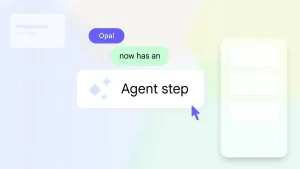Unveiling the Future: AI Steps into Software Engineering

In a remarkable leap toward the future, a new artificial intelligence named Devin has emerged, designed to tackle software engineering tasks like a human engineer. This AI doesn’t just automate tasks; it plans, executes, and even troubleshoots with a degree of autonomy that’s unprecedented.
This game-changing development was highlighted through several demonstrations, each designed to show Devin’s ability to handle complex projects, from gaming applications to real-world software enhancements. The implications of such capabilities are vast, potentially reshaping how we approach and manage software development in years to come.
Introduction of a Revolutionary AI
The evolution in artificial intelligence has just reached a significant milestone with the advent of a new AI system capable of handling software engineering tasks traditionally reserved for humans. This AI, affectionately termed ‘Devin’, isn’t just another tool; it’s designed to function as if it were a human engineer, planning and executing tasks with a level of autonomy that closely mirrors human intervention.
Real-world Applications and Demonstrations
Devin’s capabilities were demonstrated through several intriguing examples showcasing both its versatility and innovation. For starters, it was tasked with creating a browser app designed to play the Game of Life—a well-known cellular automaton. Notably, Devin was asked to infuse creativity into the project by incorporating the user’s name into a dynamic, self-evolving game world.
Further demonstrating its functional depth, Devin successfully tackled existing open-source projects. It handled multiple simultaneous processes, identifying and resolving issues that had stumped other systems and humans alike, significantly enhancing the project’s transparency and functionality.
Challenges and Complex Problem Solving
One of Devin’s more sophisticated tests involved fixing a series of complex bugs within an ambitious computer vision project. The AI methodically worked through a long list of issues with remarkable patience, mimicking human-like tenacity and prowess.
The demonstration highlighted not only the AI’s ability to handle mundane tasks but also its competency in problem-solving, crucial for high-stakes, real-world applications.
Despite its achievements, Devin still faces limitations, especially when dealing with ultra-complex datasets requiring bug fixes, where previous methodologies could only manage a success rate in the single digits. Devin’s performance, while markedly better, underscores the ongoing challenges and the need for continuous improvement in AI capabilities.
Expanding AI’s Reach: Training Other AI Systems
Perhaps the most groundbreaking aspect of Devin’s utility is its ability to train other AIs. This meta-functionality represents a leap forward in artificial intelligence, showcasing Devin’s multi-layered capabilities beyond typical AI applications.
Tasks included reinstalling packages and modifying configurations, all aimed at optimizing the performance of the AI it was tasked to train. The ability of an AI to not only perform but also enhance other AIs marks a compelling development in the field.
In the exploration of Devin, the AI engineered to navigate the realms of software development with remarkable autonomy, we’ve witnessed an impressive parade of capabilities. From creating interactive applications to troubleshooting complex codebases, Devin embodies the next step in AI’s integration into more cognitive, human-like roles in technology. Although it showcases an advanced understanding and manipulation of digital environments, Devin’s journey also highlights the necessity for ongoing enhancements to address ever-evolving technological challenges. Its performance, while impressive, serves as a reminder that the future of AI is both promising and perpetually a work in progress.





